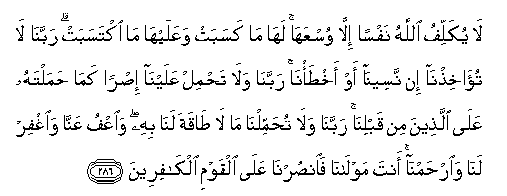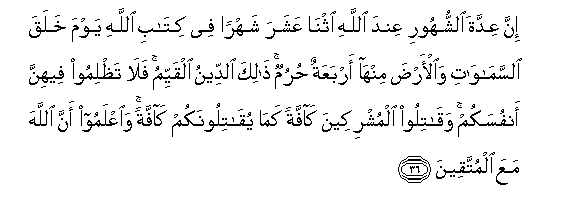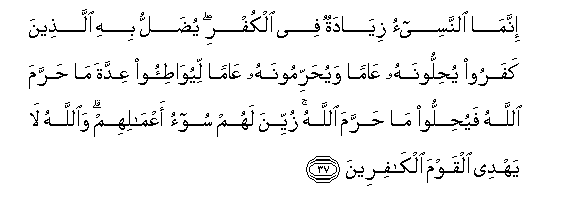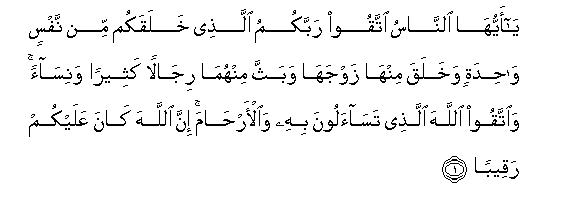CRAVING INCLUSION AND ACCEPTANCE
From childhood, we seek to acceptance from others; from parents, from peers, from mentors, from bosses. We are social creatures. Seeking acceptance is not wrong, it is part of our nature as social beings. And caring about what others think is critical in overcoming selfishness. But how far do we go with this natural urge? When does craving acceptance become toxic, to us as individuals and to all of us as a society?
For several hundred years, people have flocked to the shores of the United States from all over the world. They have come in waves, many passing through Ellis Island by boat, just as many to JFK in airplanes. They came for a host of reasons - refuge, safety, freedom, ... money. And many come thinking they will return someday to their homelands. But, life proceeds. They begin to put down roots, get married, have kids, buy houses, and start businesses. And life proceeds back home too. If they do visit, they do not recognize the land they left. They no longer fit in. They have begun to fit in in their new home.
Immigrants live in a liminal world, a barzakh - they cannot go back but where are they now? They seek refuge with each other - will fellow travelers as caught as they are between two worlds. It's an old story in America - the Italians, the Irish, the Chinese, the Arabs, the Pakistanis, etc etc. And each bemoans their situation, not realizing that others have been through the same exact process. Every ethnic group other than the core European nationalities, British, French and German, have gone through the process of "assimilation."
Immigrants from outside the core European countries congregate in ethnic neighborhoods - seeking economic and social support. Often relatives live there. Immigrants from the home country have created social service organizations that help people get jobs, learn English, find housing etc etc. Besides these more benign organizations, other less benign enterprises spring up. Every ethnic group has a "mafia." They extort protection money, gain monopolies over certain businesses, and control the flow of money going back home.
But what happens after people have begun to set down roots? The immigrant social organizations helped them to get the housing, get the jobs, but what comes next? Many come to the US to pursue the American Dream, whatever that is. They know all about from watching TV, surfing the internet. Through the media, they have learned that after you get here, you need to buy a car, a house, move out of the city to the suburbs, send your kids to best schools, etc etc. But how do you do that? Here they listen to friends who know this person or who are related to that person who has gone through the process of buying the car or the house.
These "successful" people are the role models, the people others aspire to be. It is at this point that the immigrants begin to feel that what they knew of themselves and their people is backward, ignorant, stupid. And what there "successful" people represent is progress, education, intelligence. And they became that way by emulating the dominant culture.
The Delusion of Dominion and Control: The Imperialistic Colonial Mindset
We did not begin this way as human beings. We are social by nature - cooperative. Although many anthropologists and scientists, coming as they do from the dominate culture, prefer to see conflict and killing, others using different lenses, see something else. Take the debates about Neandertals. Where they killed off, or did we intermarry with them? Western scientists preferred to speculate that we killed off the "inferior" people. But, DNA is telling us otherwise. I am quite proud of my human legacy, including those individuals who came out of Africa in the Neandertal wave, even if they did pass on my rheumatoid arthritis. They also passed on caring for the elderly and burial of the dead.
So, at some point in human history, we lived under a paradigm that valued peace and cooperation. We were a mobile people, moving with herds of animals and the availability of plant resources. We traded goods across huge distances, sang non-lexical songs together, danced around fires under the stars, and told tales of love and sadness, joy and pain. And with this cultural paradigm, we settled the world, from South Africa to Norway, from France to the Americas.
What happened? Well, at some point, actually different times in different places, we began to farm. Before that, we were all hunter-gathers, semi or completely nomadic, living in a movable fluid culture - vibrant and vital. Then, we started to domesticate plants.
Domesticating plants requires two things: ownership of land and knowledge of growing seasons. Plants require earth and water. And they take time to grow and fruit. If people want to farm, they will have to give up moving around and settle in one place, for at least the growing season. Some people still live in this semi-nomadic mode today. They also have to know when to plant the plants in order to obtain a fruitful harvest.
Early human societies grew up as part of the natural world around them. People were part of the natural world. When we began to ask ourselves who were are and how we got here, we began to answer using our own experiences, our own social structures to explain our presence and our place in the universe. We saw the earth as a womb, a Mother, and we saw the sky as a Father. Hunter-gathers tended to focus on the Mother, burying the dead in mounds at places where people would meet on their journeys across the land.
Farmers planted their crops in the earth, but needing to know the seasons when to plant caused them to look up. There they saw the movement of the stars, the phases of the moon, the positions of the sun over the course of the year. Being more settled, staying longer in one place, meant that their spiritual centers could also be more permanent. So, they built places like Gobeke Tepe and Chaco Canyon, spiritual ritual spaces with circles in the earth and alignments of structures with the movement of the moon and stars.
These ritual settlements led to residential settlements. Like Qusayy, the ancestor of the Prophet SAW, people thought, well if we need to care for these places, it is a lot easier if we live there too. So cities sprang up; permanent settlements.
Before, as hunter-gatherers, we focused on earth, as farmers we focused on land. Land because a valuable resources, something in short supply, something we could "own." Hunter-gatherers might own their clothes, their household goods, pots and pans, maybe animals, as we became pastoralists, but nothing immobile. Now, we came to own land - fixed, immobile and limited in supply.
Given the value of land in an agricultural community, it is not a surprise that we began to fight over it. If you have seen the movie, "The Gods Must Be Crazy," a story about the !Kung bushmen in the Kalahari desert, you will remember what happens when a people who know nothing of ownership and dispute, suddenly come upon a coke bottle. Soon people are fighting over it and one person is seriously hurt. So, the people charge !Ki with throwing the bottle over the edge of the earth. They reject the thing. But, our ancestors did not always do so.
The land gave us more food, and more food brought more people. These new people were often from different groups, ethnicities, languages. How did they all live together? We began to develop a means to build a society out of diversity. While previously we met at fairs and market meets, now we had to live together permanently. So, instead of relying on non-lexical songs and fire-side stories, we developed pattern of "assimilation."
The pattern of assimilation is simple - one group dominates and everyone accretes to it. In early farming communities, the first group moves up in power as each new group comes on the scene. Or sometimes the most numerous group takes over. Its gods and beliefs begin to dominate and everyone else fits their beliefs and gods into that scheme. The Greeks developed pagan hierarchies, the Hindus developed a pantheon of gods - all related somehow or other. In Makkah, the Quraish amassed 360 gods.
With our new found interest in the heavens and the forces of nature, we desired understanding and control of these forces so that we could predict how our agriculture would fair. We needed control, we needed a way to ensure success. So, we used turned to the gods to provide ourselves with reassurance that all was under our control. We would bribe the gods with food and gifts, and to do so, we hired priests who specialized in knowing what the gods wanted and how to appease them.
These priests became very powerful, with power rivaling the people who owned the land. Land provided food for the gods and gods provided food for people. So, these two power groups formed an alliance propping each other up. And they colluded with each other to get the other people coming in to the cities to work for them in the fields, so everyone on top could enjoy the fruits without the labor. This naturally made some of the new people angry. After all, hunter-gatherers have always had freedom. But cities demand giving up some of your sovereignty. So, to prevent revolts and to control people as well as land and rain, dynasties and kings, usually claiming some form of divinity, arose. Firawn states, "I am your highest lord." Musa AS reminds him that he cannot even prevent a plague or save his eldest son. Nebuchannezer claimed he had power over life and death. Ibrahim refutes him by reminding him that he has no power to control the sun or the moon.
With the industrial age, we moved into a new power structure. Agriculturally based feudalism fell, but capitalism rose. Power is based on hoarding of money and resources, and enslavement of the population in wage dependency, forcing people to work inordinate hours for little real reward. We have become zombies, forced to retreat into a virtual world of our own creation, where we can run away from the pain of emotionless, unmerciful, and heartless social situations, where we are Kafka-like cockroaches trapped in a corporate-dominated roach motel.
But always the carrot is dangled in front of us. The carrot of the control. Power, land, safety and security, food, clothing shelter, sex, power. You too can be on the top, and have control... Really!
Assimilation: a Symptom of the Delusion of Control and the Imperialistic Colonial Mindset
After a while, people stop coming into the city. They are tired of the overlords telling them what to do. So the overlords get a new idea. They decide to offer a carrot to the people by telling them they will be rewarded by serving the "city," the home team, by fighting to take more land, by fighting a rival people, and gaining more territory and more slave workers and more power. And since they have fought for the city, they will be rewarded with position and power themselves. So, the overlords turn dissent into consent by promising people a share of the power and riches. Capitalist economies do the same thing through stock ownership, executive positions, management positions etc. But, these tactics only further entrench people in the roach motel.
Even the "power" people are controlled by their greed, their endless desires... . The Trumps and 1%ers are as just as enslaved as all of us. They are just as trapped and they all can fall. Tiger Woods, Jerry Sandusky, Dennis Hastert, they all fell down. Those who seek control and fight their way to the top of the heap, are just as likely to be cut down by someone else seeking control. Ibn Kaldun in his
al-Muqaadimah details the patterns of rise and fall of whole civilizations following this model of grasping for power and control.
Assimilation is part of this pattern. It is what new people do in order to gain power withing a Dominion and Control - Imperial Colonial system. People coming from the "outside" need to get "in" somehow in order to be granted power by the power elite. In order to do so, one has to find connections with the power elite. Marriage into the group is one way. But, that may only be possible if you can show that you have equivalent position. So, you will need to show either that you come from the power elite of your own group, or you are sufficiently similar to the local power elite. To become sufficiently similar you will have to assimilate. And you do so by imitating the power elite as much as possible.
Back to our immigrants. They can rarely do this fully. Accents, cultural differences, and other ethnic factors make them unable to "fully" become a member of the American power elite. But, second-gens can, and often desperately try to do so. Embarrassed by their "back-home," accent-ridden, "ignorant" parents, they often abandon them to nursing homes. After all, that's what "White" people do. Their parents, who just a few years before paraded their "top" doctor children in front of other immigrant American-wanabes, are now flung on the trash heap of Type A overdrive aspirations.
However, there is a catch. No matter how assimilated they become, they will never be accepted as "real" Westerners. There is always that question, "So, where is your family from?" And Brad says, "England," and Judy says, "Germany," and you say, "India." And Brad and Judy say, "Ooooh." And it could just as easily be Italy, Greece, Ukraine, Russia, Japan, China, Syria, Iraq, Iran... it is still not part of the Dominion and Control Imperial Colonial few.
Assimilation only leads to domination. And it not you who will dominate. If you must assimilate, then we can assume you are not already one of the people entitled to dominate. Assimilation only makes you capable of being dominated. All your assimilation does is reaffirm the colonials' right to dominate and their superiority over everyone else. It makes you the one who gets colonized, not the colonial.
There is another way!
Indigenation
So, how can we come together in big groups, with such great diversity in ethnicity, language, and backgrounds. We actually have a way to do so, but its an old forgotten way. It's the indigenous way.
We have explored indigenosity elsewhere on this blog. It is an older, more cooperative paradigm, the paradigm of our earliest ancestors. An indigenous mindset begins with an understanding that this earth, its land and sky, belongs to the one who created it.
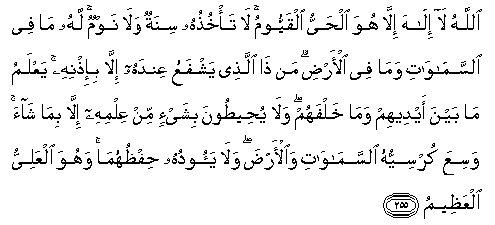
2: 255. God! There is no god But He,—the Living,
The Self-subsisting, Eternal. No slumber can seize Him
Nor sleep. His are all things in the heavens and on earth.
Who is there can intercede In His presence except
As He permitteth? He knoweth What (appeareth to His creatures
As) Before or After Or Behind them.
Nor shall they compass Aught of His knowledge
Except as He willeth. His Throne doth extend
Over the heavens And the earth, and He feeleth
No fatigue in guarding, And preserving them
For He is the Most High, The Supreme (in glory).
Certainly, this most power ayat in the Qur'an leaves no doubt over who has the ultimate dominion and control, Allah SWT.
People, then, are khalifa over the Ard.

2:30. Behold, thy Lord said to the angels: "I will create
A khalifah/successor on earth." They said: "Wilt Thou place therein one who will make
Mischief therein and shed blood?— Whilst we do celebrate Thy praises
And glorify Thy holy (name)?" He said: "I know what ye know not."
We are the successors of the angels in terms of their role as protectors and guardians over the earth. We are responsible for all the creatures upon it. But instead, we have become selfish and self-centered. We abuse creation instead of protecting and nurturing it. This is a direct result of our colonialistic mindset of dominion and control.
Indigenosity leads us to view ourselves as part of nature instead of separate, other and superior to it. And, such a world view means that we are all equally responsible, equally human. No person is superior to another except in taqwa.
According to
Musnad Imam Ahmed, the Prophet SAW said,
The Prophet (peace and blessings of Allaah be upon him) said: “O people! Verily your Lord is One and your father [Adam] is one. An Arab is no better than a non-Arab, and a non-Arab is no better than an Arab; a red man is no better than a black man and a black man is no better than a red man – except if it is in terms of taqwa (piety)…” (Reported by Imaam Ahmad, 22391.)
We are all responsible and we should work together, finding ways to cooperate instead of to dominate.
So what does that mean in terms of immigration to the West or other places? Instead of focusing on assimilating and dominating, we should seek to become indigenous, to belong to our new home. One way to do this is to learn local history. Who came there before us, as far back as we can discover. What is the natural history of the earth in that place - what plants and animals roam or have roamed there? Were there dinosaurs, ferns, giant dragon flies; were there wholly mammoths, camels, horses; and what about the archaeology? Are there ruins of previous civilizations? What can we learn from their remains? What where their challenges, successes, and mistakes? Allah SWT tells us in the Qur'an to learn from those who went before.
Learning about ancient foods and lifestyles can help us live more sustainably on the land today. That too is part of indigenousity and surrender to Allah SWT in Islam instead of harb with Allah and the seeking of dominion and control.
We can also learn about more recent peoples, tribal peoples and European settlers alike. As new migrants upon the land, we will carry their stories forward into the future. So, we should know about the local tribal people, their culture and story, and work with them to create an indigenous community in our new homes. And we should also reach out to European settlers. Many of them are afraid of losing their culture.
The current wave of hate and racism in America is fueled by fear, no just of the foreign, but of losing culture. Demographics are changing across the nation. Areas dominated by "Whites" are now being settled by people from South and Central America, the Middle East and Africa. What will happen to cherished traditions, traditions we, as immigrants, seldom care about.
All culture, unless it is haram, is special, and deserves respect. Allah SWT said He created us as nations and tribes, groups and ethnicities, so they was could "ta'arafuu." Through exploring the differences and similarities among us, we learn about ourselves, that special something that Allah SWT told the angels He knew when He made us khalifah fi al Ard. We may not adopt particular aspects of a given culture, but we should always respect it and be willing to carry it forward into the future through stories, pictures and other means of recording. We have a great gift today in being able to do so; people of the past only had story telling.
By caring about each other, and each others life stories, we increase love, and overcome the forces of hate. People who may fear the loss of culture, of the stories of their grandparents who came to that land and farmed it, and suffered from their children and grand children, and whose journeys are in danger of being lost, they will no longer fear - no longer hate the other, for the "other" has become them.
Very often, as Muslims, we focus on our own cultures in unhealthy ways. We other obsess over recent history of our "people," or we focus on the period of the Prophet SAW. Both are important. Certainly, the Seerah teaches us how to conduct our affairs today. But, overly focusing on these tow areas of history leaves us totally ignorant of the human world around us, and prevents us from either assimilating or becoming indigenous. We will be forever trapped within an insular world, unable to build bridges or make connections, unless we understand the importance of all history, and how it can assist us in connecting to all of humanity today.
We as Muslims are suppose to be the best of Ummahs from among mankind. We will not be until we stop trying to either dominate it, or assimilate into it, but instead become indigenous to it.
Allah Ta'ala Alim
* All Arabic quotations from the Qur'an are from the Hypertext Qur'an website. http://www.sacred-texts.com/isl/htq/


